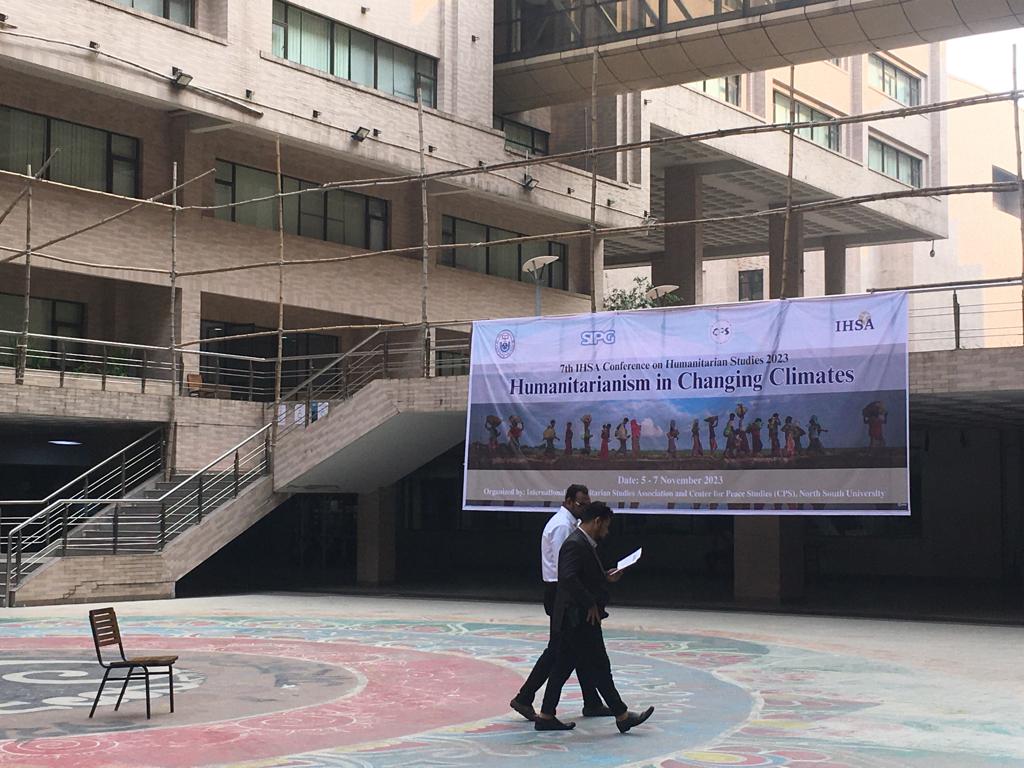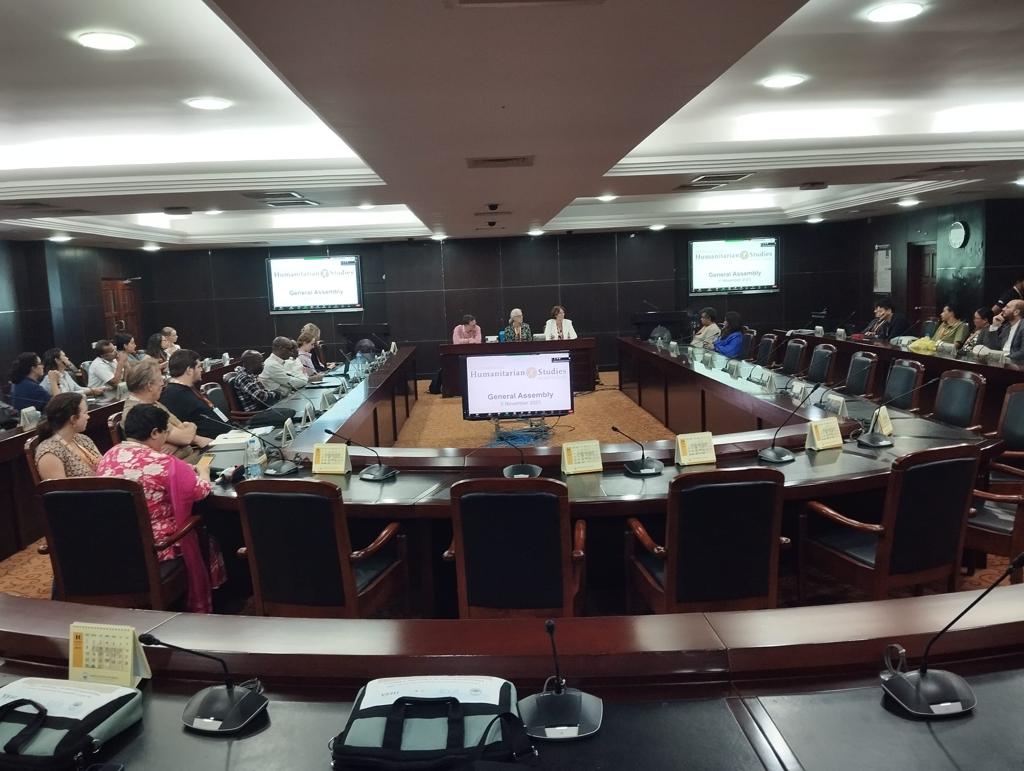At the 7th IHSA (International Humanitarian Study Association) Conference, which brought together over 100 people and 30 organisations (universities, research centres, NGOs) over three days, the Foundation organised a round table entitled “From evidence to change: the challenged journey of research in humanitarian organisations”.

Why should more research evidence be used in humanitarian action? How can disciplines such as political science, sociology and anthropology be integrated into the management of humanitarian crises and disasters? How can the impact of research on social innovation be enhanced and measured?
These issues were the focus of presentations given by Virginie Troit, Director of the French Red Cross Foundation, and Omar Abou-Samra, Director of the International Federation of Red Cross and Red Crescent Societies’ Global Disaster Preparedness Centre (GDPC). The presentations were followed by a debate on the ‘localisation’ of research and the lack of awareness of research among those working in the field, not so much in terms of recurrent data collection, but in terms of analysis and operational use.
This observation highlights the opportunities and challenges both in terms of learning to cooperate between and within humanitarian organisations and in terms of accountability to the populations supported.

This IHSA meeting was enriched by discussions on :
- the experience of the American Red Cross, particularly its programme to improve community preparedness for natural disasters (Global Disaster Preparedness Center)
- the value-adding tools and new methodologies of the Red Cross Foundation (Post-Research and Social Innovation Workshops) for making the best possible use of the results of the research we support
- des expériences du Croissant Rouge du Bangladesh et du Croissant Rouge turc.
At the end of these discussions, the representatives of the Red Cross Red Crescent Research Consortium (RC3) emphasised the importance of research in changing humanitarian practices.
A round table demonstrating the commitment of stakeholders to the Movement’s principles and to innovation in the humanitarian field.






